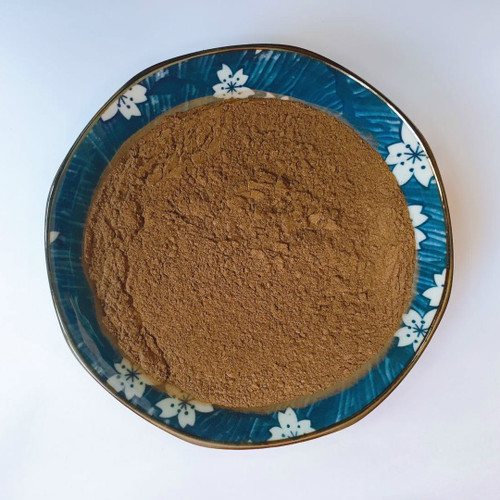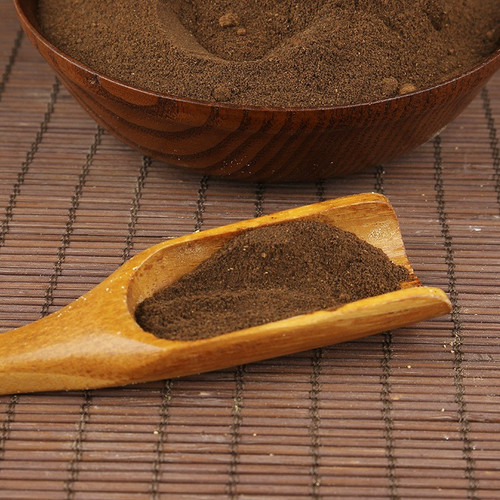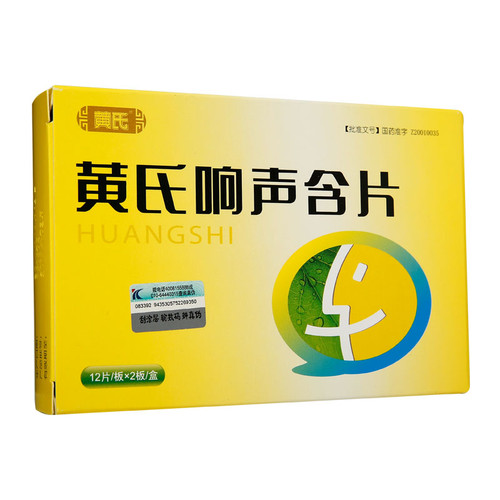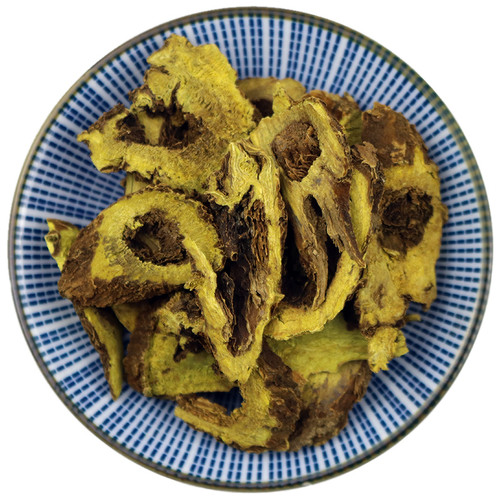Product Overview
Parts used: Prepared dried root tuber
TCM category: Herbs that cool the Blood
TCM nature: Cold
TCM taste(s): Sweet
Meridian affinity: Heart Kidney Liver
Scientific name: Rehmannia glutinosa
Use of unprepared rehmannia (Di Huang) in TCM
Please note that you should never self-prescribe TCM ingredients. A TCM ingredient is almost never eaten on its own but as part of a formula containing several ingredients that act together. Please consult a professional TCM practitionner, they will be best able to guide you.
Preparation: Remove impurities, wash, cut in thick slices and dry.
Dosage: 9 - 30 grams
Main actions according to TCM*: Expels Heat by Cooling Blood. Tonifies Yin by promoting Fluid production. Soothes the Heart by calming Blazing Fire. Cools and nourishes.
Primary conditions or symptoms for which unprepared rehmannia may be prescribed by TCM doctors*: Palpitations Nosebleed Fever Insomnia Diabetes Dermatitis
Contraindications*: This herb should not be used by those with Spleen Qi or Yang Deficiency especially when there is Dampness in conditions such as diarrhea, lack of appetite or Excess Phlegm. It should also be avoided by pregnant women.
Common TCM formulas in which unprepared rehmannia are used*:
For Lung and Kidney Yin Deficiency associated with chronic bronchitis, asthma or chronic pharyngitis combine unprepared rehmannia with lily bulbs (Bai He), prepared rehmannia (Shu Di huang), dwarf lilyturf roots (Mai Dong), white peony roots (Bai Shao), dong quai (Dang Gui), ningpo figwort roots (Xuan Shen), platycodon roots (Jie Geng), fritillary bulbs (Chuan Bei Mu) and liquorice (Gan Cao).
For Heat in the Stomach with symptoms of toothache, mouth sores, facial swellings, bad breath and dry mouth combine unprepared rehmannia with bugbane rhizomes (Sheng Ma), goldthread rhizomes (Huang Lian), mudan peony bark (Mu Dan Pi) and dong quai (Dang Gui).
For coronary heart disease, rheumatic heart disease, myocarditis, arrhythmia, hyperthyroidism or neurasthenia combine unprepared rehmannia with jujube dates (Da Zao), ginseng (Ren Shen), liquorice (Gan Cao), dwarf lilyturf roots (Mai Dong), hemp seeds (Huo Ma Ren), cinnamon twigs (Gui Zhi) and fresh ginger (Sheng Jiang).
For Heat-induced nosebleeds, hematuria and/or blood-tinged sputum combine unprepared rehmannia with lotus roots (Ou Jie) and cogongrass rhizomes (Bai Mao Gen).
For chronic cough combine unprepared rehmannia with honey (Feng Mi), perilla seeds (Zi Su Zi), fresh ginger (Sheng Jiang) and apricot seeds (Xing Ren).
For diabetes combine unprepared rehmannia with american ginseng (Xi Yang Shen), yam (Shan Yao), gypsum (Shi Gao) and anemarrhena rhizomes (Zhi Mu).
For heavy menstrual bleeding or strong bleeding postpartum combine unprepared rehmannia with tienchi ginseng (San Qi), dong quai (Dang Gui), white peony roots (Bai Shao) and szechuan lovage roots (Chuan Xiong).
Key TCM concepts behind unprepared rehmannia (Di Huang)'s properties
In Traditional Chinese Medicine (TCM), unprepared rehmannia are plants that belong to the 'Herbs that cool the Blood' category. Herbs in this category are used to clear inflammatory and infectious conditions, referred to as 'Internal Heat' in TCM. This is why most of the herbs in this category will have both antibacterial and antiviral properties. In TCM one has too much 'Heat' in their body as a result of a deficiency of 'Yin' (which is Cold in nature, see our explanation on Yin and Yang) or, more commonly, an excess of Yang (Hot in nature). Herbs that cool the Blood treat the latter and as such tend to be Cold or Neutral in nature.
As suggested by its category unprepared rehmannia are plants that are Cold in nature. This means that unprepared rehmannia typically help people who have too much "heat" in their body. Balance between Yin and Yang is a key health concept in TCM. Those who have too much heat in their body are said to either have a Yang excess (because Yang is Hot in nature) or a Yin deficiency (Yin is Cold in Nature). Depending on your condition unprepared rehmannia can help restore a harmonious balance between Yin and Yang.
Unprepared Rehmannia also taste Sweet. The so-called "five elements" theory in Chinese Medicine states that the taste of TCM ingredients is a key determinant of their action in the body. Sweet ingredients like unprepared rehmannia tend to slow down acute reactions and detoxify the body. They also have a tonic effect because they replenish Qi and Blood.
The tastes of ingredients in TCM also determine what organs and meridians they target. As such unprepared rehmannia are thought to target the Heart, the Kidney and the Liver. In addition to regulating blood flow, in TCM the Heart is believed to be the store of the "spirit" which basically refers to someone's vitality. The Kidneys do not only regulate the urinary system but also play a key role in the reproductive system and the growth and aging process of the body. The Liver is often referred as the body's "general" because it is in charge of regulating the movements of Qi and body fluids. It also takes a leading role in balancing our emotions.








